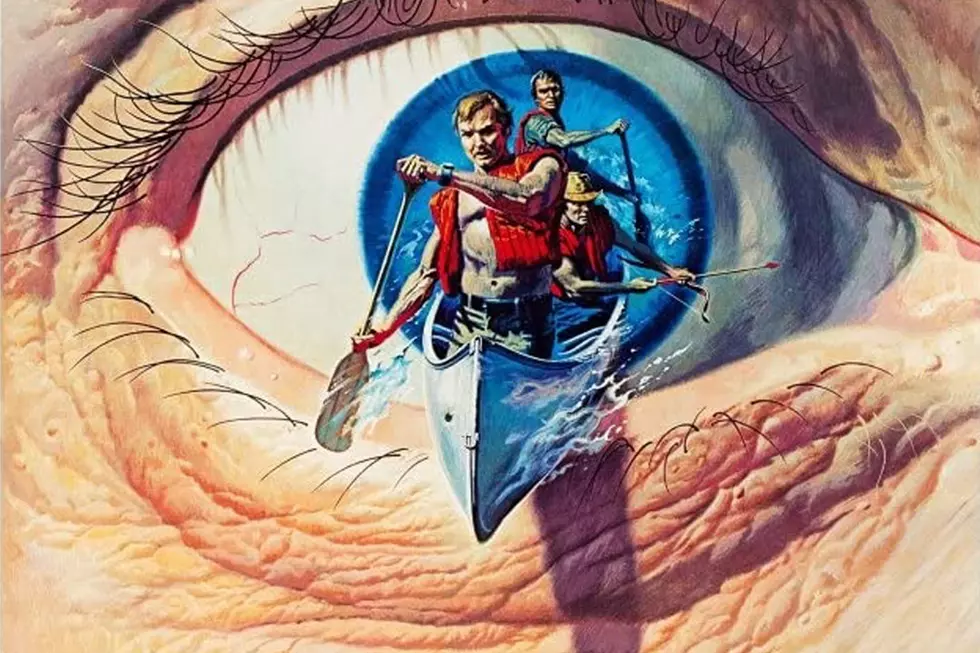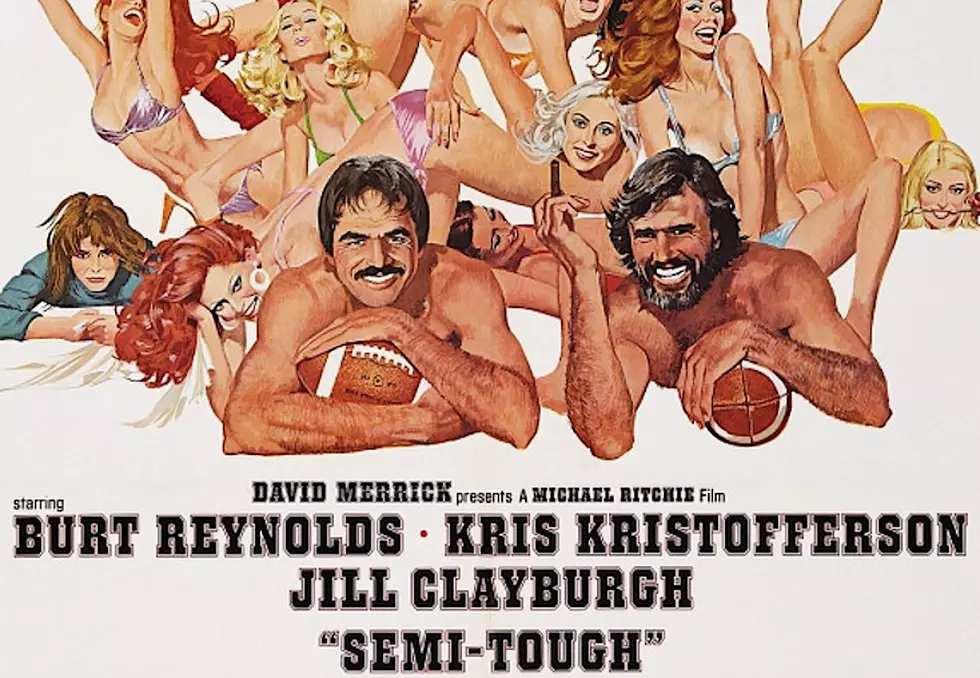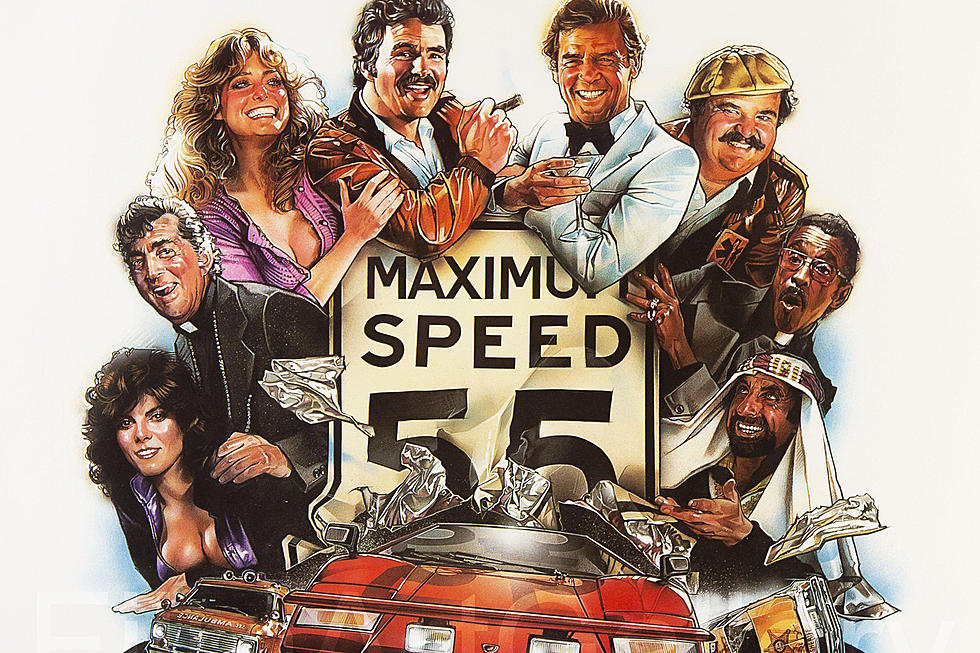
50 Years Ago: ‘Deliverance’ Puts Masculinity Through a Trial by Terror
In 1989, actor Ned Beatty penned a brief, pithy opinion piece for The New York Times titled “Suppose Men Feared Rape.” In it, Beatty referenced the decades of catcalls he’d received since filming his infamous rape scene in 1972’s Deliverance, explaining that all those (invariably male) yahoos shouting, “Squeal like a pig!” are telling on themselves. Said Beatty (who proclaimed a penchant for brutal honesty in such situations): “Somewhere between their shouts and my threats lies a kernel of truth about how men feel about rape. My guess is we want to be distanced from it. Our last choice would be to identify with the victim.”
Deliverance was Beatty’s first film; both he and costar Ronny Cox were plucked off of the theatrical stage to support established actors Jon Voight and Burt Reynolds in Boorman’s adaptation of James Dickey’s 1970 novel. In it, four middle-class Atlanta suburbanites follow Reynolds’ survivalist-minded Lewis on a white-water canoeing trip down a rural Georgia river destined to be swamped under by the construction of a hydroelectric dam.
Things go wrong once Voight’s pipe-smoking Ed and Beatty’s portly insurance agent Bobby find themselves at the mercy of two backwoods types (character actor Bill McKinney and nonprofessional former stunt-show performer Herbert “Cowboy” Coward) who, in a legendarily visceral scene, rape Bobby before the late-arriving Lewis kills one with a ready bow and arrow. (Ed, strapped by the neck to a tree with his belt, is forced to watch helplessly, just as viewers are.) A drawn-out and terrifying scene on its own, Bobby’s rape kicks off the second half of the film, where Dickey’s overheated debate on the nature of masculine virtue versus emasculating society sees Lewis convince his companions to hide the attacker’s body rather than submit themselves to the scrutiny of the legal system. Trying to sway the uncertain Ed and Cox’s rigidly objecting Drew, Lewis explicitly dangles the public shame Bobby would endure in any investigation, with the shell-shocked Bobby eventually relenting. “I don’t want this getting around,” Bobby mumbles.
Even before this, however, Deliverance traffics expertly in unease, as these four city dwellers drive deeper into the Georgia wilderness. (Boorman, viewing the starkly beautiful Georgia locations as too photogenic, de-saturated the film’s color palette to a murky and oppressive green and brown.) A gas station encounter is all barely concealed suspicion and hostility, as self-appointed alpha male Reynolds talks tough in negotiating locals to drive the group's cars downriver. Cox’s gentle, guitar-playing Drew initially makes a tentative connection with a silent, odd-looking youth (Billy Redden, selected by Boorman as emblematic of the weekend adventurers’ jokes about “inbreds”), the pair engaging in a rousing rendition of bluegrass classic “Dueling Banjos.” Rebuffed by the silent boy when he goes in for a handshake, however, Drew is further unsettled when, once the two canoes are underway, he spots his former accompanist solemnly watching from a log bridge, his quieted banjo swaying back and forth like a pendulum.
Dickey, a larger-than-life figure himself, sought to say profound things about masculinity in the novel, with Reynolds’ swaggering pronouncements about survivalist manliness contrasting with Voight’s softer, married Ed’s defense of progress and comfort. Reynolds, reclaiming a career stalled by indifferent pictures and Tonight Show self-parody, is the best here he ever would be. Lewis, with his sleeveless sporting vest and stub of a cigar, prefigures Fight Club’s proselytizing Tyler Durden, as Lewis preaches a gospel of manly self-sufficiency in alluringly sententious sloganeering. “Sometimes you have to lose yourself before you can find anything,” he tells the skeptical Ed as Lewis drives them recklessly in search of the river.
But it’s in the aftermath of Bobby’s assault that Ed and Lewis’ debate switches hands. After Drew suddenly pitches forward into the raging rapids, Lewis convinces the others that he’d been shot by the one escaped rapist, lurking somewhere above. With Drew missing, one of the canoes shattered and Lewis sustaining a horrifying compound fracture of his leg, Ed sets out to confront the supposed ambusher, climbing a sheer cliff face with his bow and arrows in an egregious day-for-night sequence where Boorman’s solarized darkness looks like nothing so much as the opening credits to Tales From The Darkside.
Spotting a man with a gun, Ed, who’d ashamedly been unable to kill a deer earlier, shoots him, but not before he falls on one of his arrows, impaling his side. Spotting dentures in the man’s mouth, he’s uncertain if it’s the same toothless man from before, but he and Bobby sink the man in the river, regretfully doing the same when they find the dead Drew grotesquely mangled on the rocks downstream. (Cox is double-jointed, and convinced Boorman that Drew’s twisted posture was a ghoulish touch.) The last quarter of the film sees Ed and Bobby cagily trying to keep their story straight, once more in the face of an isolated and suspicious community where their otherness marks them out as both threat and potential prey.
Watch the Trailer for 'Deliverance'
Deliverance’s legacy, despite Oscar nominations for Best Picture and Best Director, rests firmly on its central scene of sexual violence. As Beatty suggested, the resulting flood of jeering and catchphrases (the second rapist’s taunt that Voight has “a real purty mouth” as ubiquitous as McKinnon’s pig line) says a lot more about masculinity than either Dickey or Boorman’s adventure cliches or speechifying. (For those claiming that homosexuality is at the film’s heart of darkness, one can only shudder at the thought of four women canoers being confronted in those woods.) As the film terrifyingly demonstrates (and Beatty’s later piece repeats), rape is about toxic, predatory maleness. It’s telling that only Drew, the one member of the party staunchly against Lewis’ plan to hide the body, can bring himself to comfort the shattered and still-naked Bobby, even putting his arm around him where he lies, streaked with mud and tears. “He was the best of us,” Ed intones as he and Bobby reluctantly tie stones to Drew’s body and continue their agreed-upon coverup.
Lewis, who’d berated rowing partner Bobby the day before the assault (calling him “chubby” and “dummy”) quickly turns solicitous once Bobby’s support for his plan becomes necessary. Even there, he wins Bobby over not with comfort, but with an acknowledgment of the supposed shame of what had been done to him, expertly then exploiting Drew’s faith in “the system” to get him to abide by a vote on what to do. Reynolds’ Lewis is the breast-beating bully of the group, so invested in his vision of rugged, alpha-male individualism that only Drew among the four is not swayed. “He wants to be one with nature and he can't hack it,” Drew says in an aside to Ed and Bobby before things go wrong.
A major hit (returning $46 million at the box office on Boorman’s meager $2 million budget), Deliverance divided audiences. Boorman, who fought studio plans for bigger stars (Gene Hackman, Marlon Brando, Lee Marvin and Charlton Heston were all considered at times), achieves a forbidding, queasy vulnerability throughout, with shots from above and from behind trees suggesting a menace mirroring the suburbanites’ variously concealed unease.
One way Boorman kept costs down was to eschew traditionally expensive insurance on his actors (“I don’t believe in insurance,” Lewis brags at one point) and to have his actors do the vast majority of their very dangerous stunts. As a result, Beatty nearly drowned, while Reynolds, vowing to do a perilous waterfall stunt himself, broke his tailbone and was knocked senseless. Author Dickey, who had a habit of showing up drunk and berating the actors, became so incensed at Boorman’s rewrites that, again drunk, he knocked out several of the much smaller director’s teeth. (Making up, Boorman eventually cast Dickey as the wary sheriff at the film’s end.)
Still, as much as Deliverance’s production was inundated by Lewis-like recklessness and bravado, the film itself remains a thorny and provocative examination of the limits and pitfalls of American masculinity.



